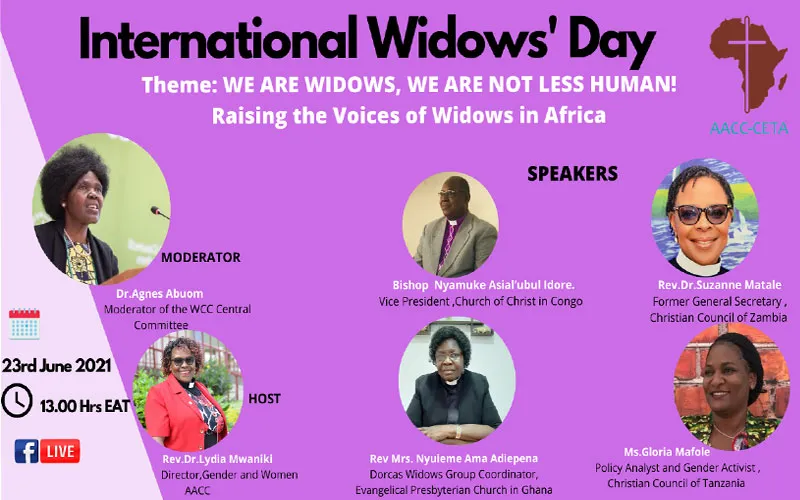She also noted that Islamic laws, which allow polygamy, make it harder for there to be any forms of inheritance as widows will only cumulatively share half of the inheritance.
The situation is no different in Ghana as attested by Rev. Nyuieme Adiepena, a widows’ group Coordinator in the West African country.
Describing traditional rites widows are forced to undergo in the West African nation as “traumatizing,” Rev. Adiepena said widows in Ghana have an alternative way of “cleansing.”
“The church provides a safe haven for widows who have been dehumanized by traditional rites in the name of cleaning them up. In the church, widows are offered with an alternative way to mourn their departed husbands,” said the Cleric of the Evangelical Presbyterian Church of Ghana.
She however challenged churches across the continent to be with widows even after they have buried their husbands for this, she notes, is the time depression sets in.
(Story continues below)
“After I buried my husband 13 years ago, his family members were on my neck immediately claiming I had a plan of taking all his wealth. We had no much wealth by then for everything had been depleted during our quest for his cancer treatment,” said Dr. Suzzane Matale, former secretary general for the Christian Council of Zambia.
Dr. Matale who was also among the forum’s speakers said after the 1995 UN sponsored women summit in Beijing that she was part of, they convinced the country’s legislature to constitute laws allowing widows to inherit their husband’s wealth.
“We advocated for change in how widows are treated in Zambia. The result of that advocacy is the existence of two acts in our constitution; the intestate succession law and formation of victims support units,” she explained.
She added, “These laws protect widows and women in general from being dehumanized when it comes to owning what rightfully belongs to them. The constitution has helped mitigate challenges faced by widows.”
Dr. Matale however said that illiteracy and lack of knowledge, particularly among women in rural Zambia, make it very difficult for the laws to be used to protect women.
Failure of the church to live up to its role in stabilizing widows was also highlighted during the June 23 virtual forum with some churches being faulted for not being caring to widows.
“It is very sad that there are some churches in the continent which chase away widows. They subscribe to the same ideology as the proponents of traditional African beliefs,” said DR Congo’s Bishop Nyamuke Asal’ubul Idore during the forum.
The Congolese Bishop further challenged the church to reach out to African tribes still practicing dehumanizing activities towards widows with alternative and friendlier ways of treating these women.
As an ecumenical body with a membership of about 140 million, AACC that spearheaded the June 23 virtual forum to mark the International Widows Day addresses the plight of widows across Africa through its “Justice for Widows Campaign” that was launched in 2019.








